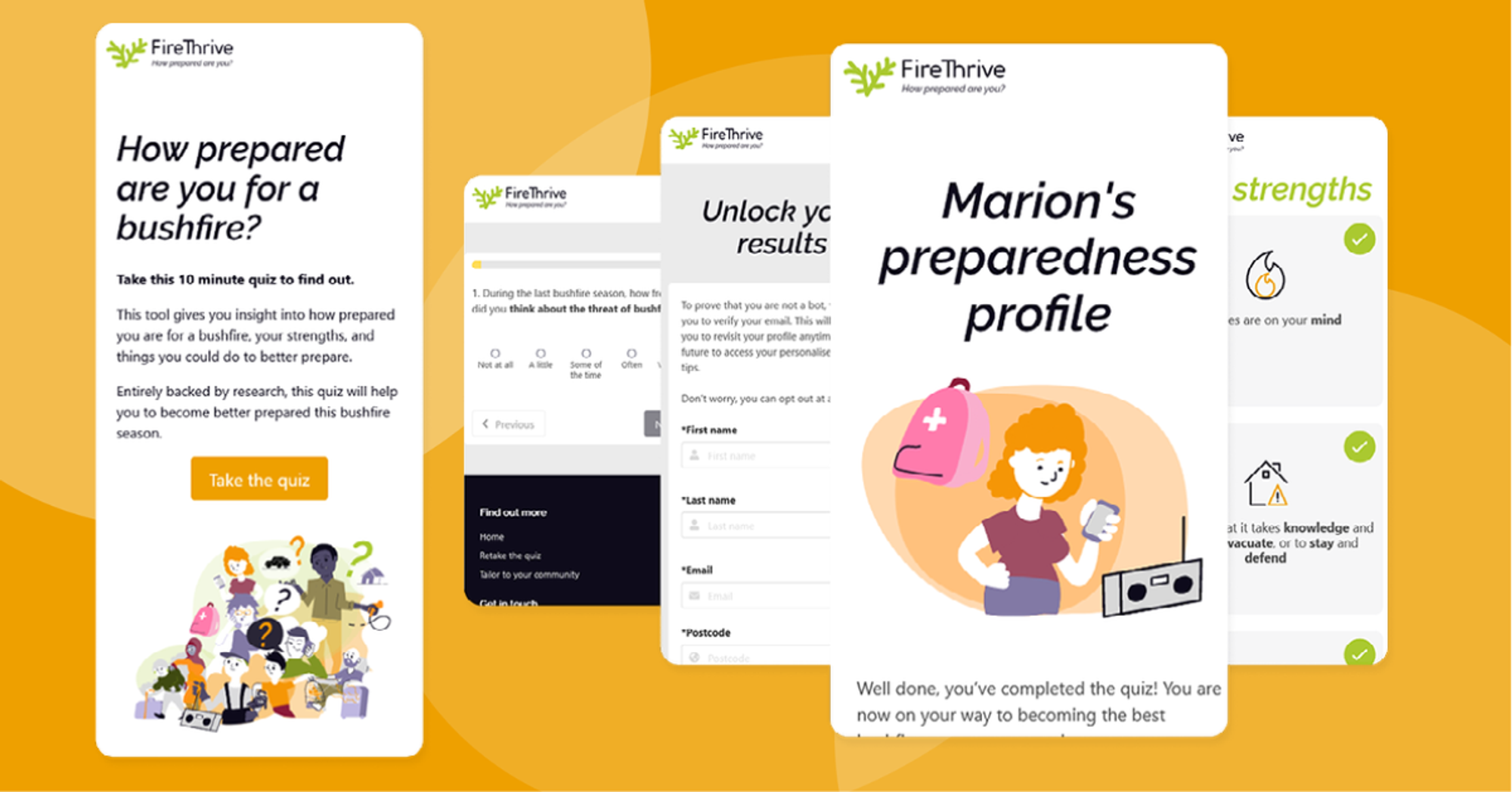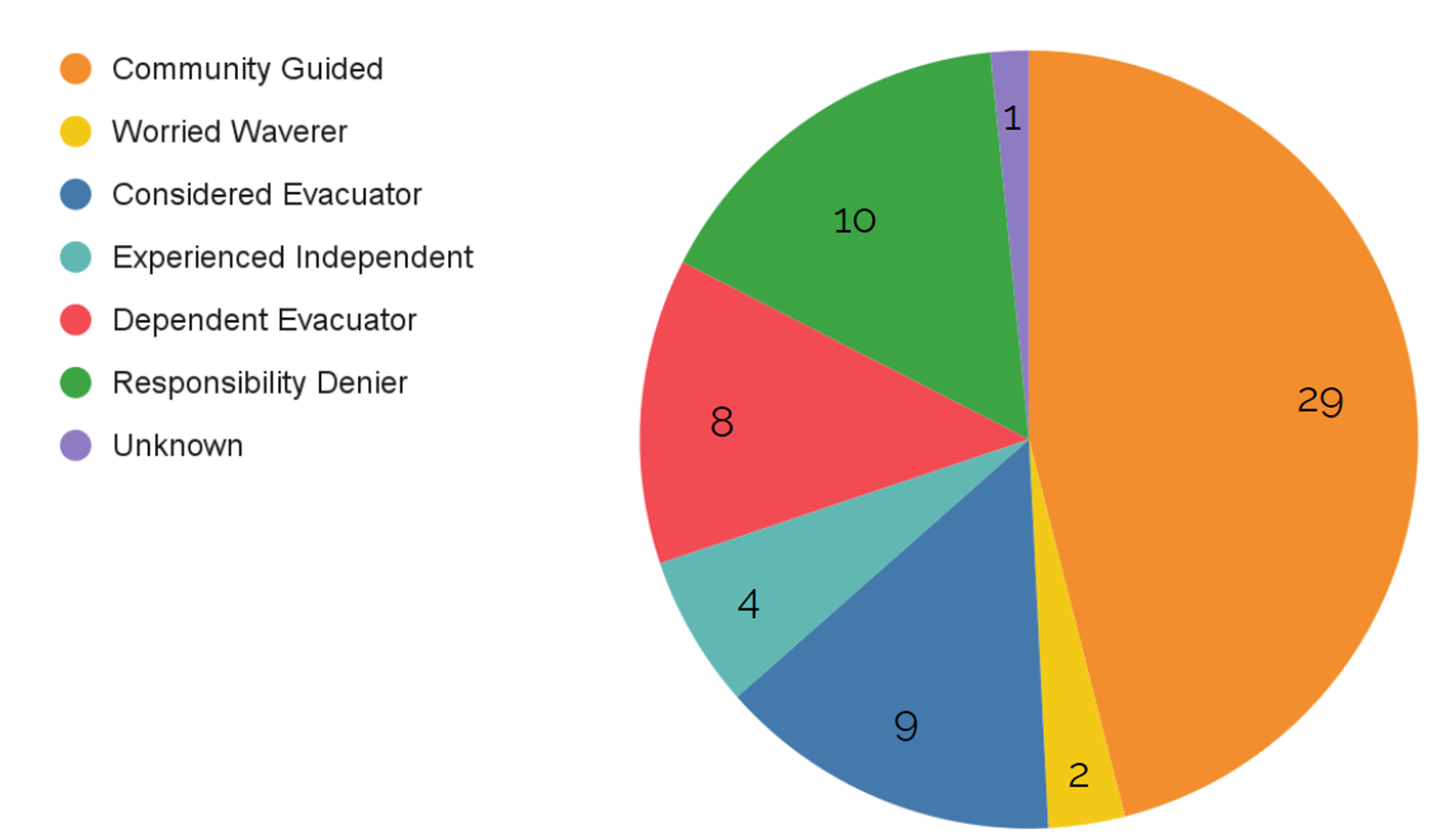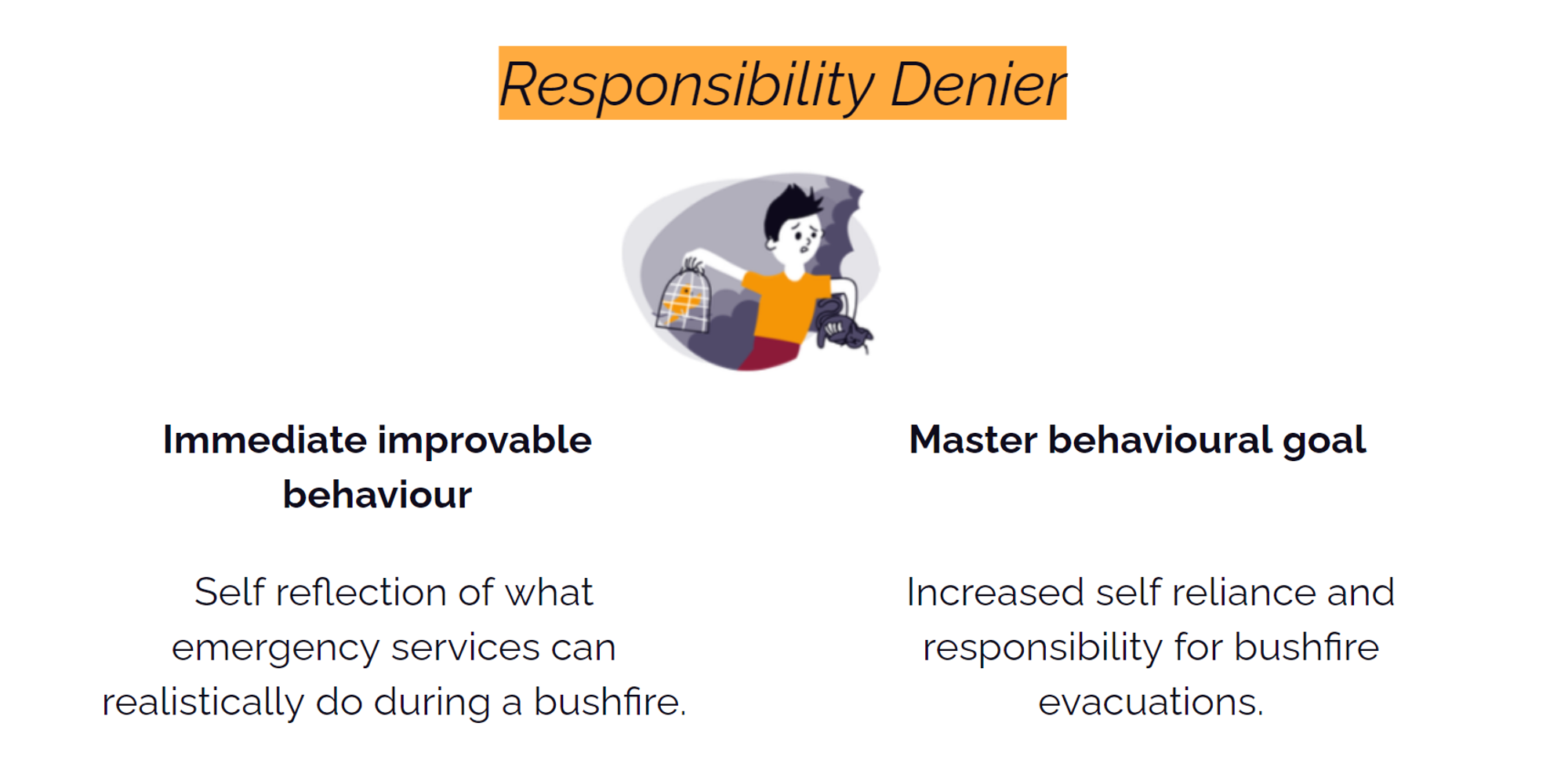 Rachael Vorwerk
Rachael VorwerkTranslated directly from the latest social science bushfire preparedness research, the FireThrive team worked with academic Dr Ken Strahan to help Australians better prepare for bushfires.
Challenge statement
Bushfire preparedness education does not reflect the diversity of communities nor their specific circumstances. This is particularly the case with vulnerable groups.
What the client wanted
An online tool that gives bushfire-prone residents insight into how prepared they are for a bushfire, their strengths, and things they could do to better prepare.
Impact
The team launched the online free web application called ‘How prepared are you for a bushfire?’ in September 2021.
Almost 400 respondents across Australia took part.
The tool was available across all digital devices.
A unique learning resource was created for each archetype to help them to better prepare for a bushfire. These ranged from Q&A soundbites with a firefighter, a conversation starter, and fillable forms that could be downloaded to create a contact list.


We found a breakdown of the following seven archetypes, consistent with Ken Strahan’s research: :
- 69 Considered Evacuators
- 133 Community Guided
- 37 Dependent Evacuators
- 21 Experienced Independents
- 26 Responsibility Deniers
- 14 Worried Waverers
These results can be filtered by postcode to find out the unique strengths and weaknesses of each community.
This allows state and local government, the private sector and schools to get a better understanding of how prepared their community is for bushfires, then tailor educational resources to match.
Contact us today if you would like to know how prepared your community is and how our educational resources can help, please email us at hello@climatethrive.com.
The nitty gritty details
Step 1: Research translation
- The team worked closely with social science researcher Dr Ken Strahan to translate his research into a usable tool for bushfire-prone residents.
- Through workshops, we worked through Ken’s seven bushfire evacuee ‘personality types’ and identified each archetypes’ most immediate point of improvement

Step 2: Developing educational resources
- For each of the seven archetypes’ unique points of improvement we created a different educational resource to match.
- These educational resources ranged from a Q&A with a firefighter to learn about responsibilities, hypothetical scenarios, a conversation starter, and fillable forms that could be downloaded to create a contact list.
Step 3: Making the tool
- Our user experience developer Dan, designed the flow of the tool
- The team worked with software developer Adam Kirk to build the tool
Step 4: User test, iterate, and repeat
- With the first prototype of the tool, the team tested the tool with bushfire-prone residents, specifically on the flow, look and tone of the tool
- Based on their feedback, the team tweaked the tool to make it as user friendly as possible
Step 5: Launch and promote
- The team engaged with 16 LGAs across the greater Sydney, Hunter and Central region
- We created accompanying business cards, conference presentations, social media strategy, press kit and physical magnets
Active Sustainability Development Goals (SDGs):
Goal 4: Quality Education
Goal 11: Sustainable Cities and Communities


.jpg%3Ftable%3Dblock%26id%3D65475f58-becf-47f9-81c7-7d0e7bf45ed5%26cache%3Dv2&w=3840&q=75)

